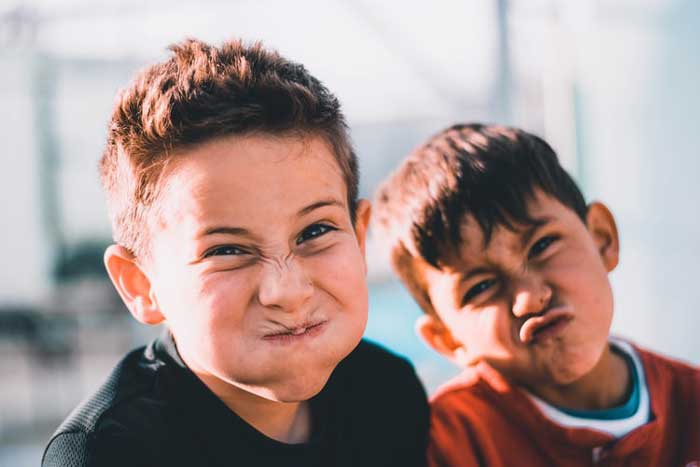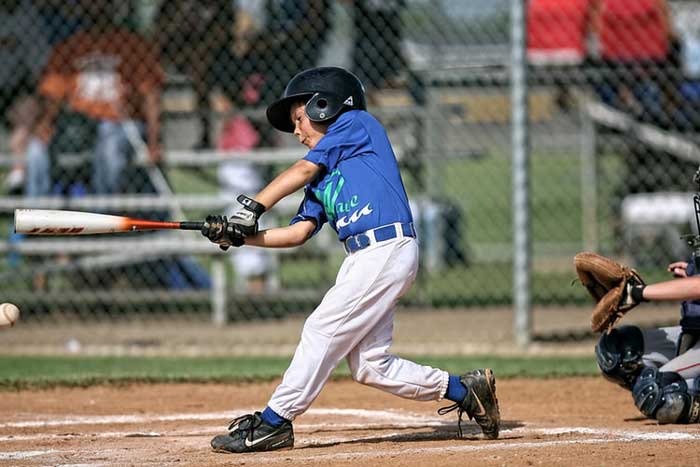Why Are Sports Beneficial to Kids?
Active outdoor games, sport games in particular, must form an important part of the life of every child. A child engaged in doing sport outside can avoid a number of health problems that assault less active kids, like vision issues or excessive weight. Taking part in sportive games develops coordination and other useful skills.
 What‘s more, sport-mindedness provides benefits far into adult life, too: as emerges from a recent study by Cornell University behavioral specialists, people who used to go in for team sports when schoolchildren become more efficient employees (and HR departments know that!). Those are great benefits of sports for kids. But not the only ones! Let‘s find out which skills children can learn through participating in sports!
What‘s more, sport-mindedness provides benefits far into adult life, too: as emerges from a recent study by Cornell University behavioral specialists, people who used to go in for team sports when schoolchildren become more efficient employees (and HR departments know that!). Those are great benefits of sports for kids. But not the only ones! Let‘s find out which skills children can learn through participating in sports!
To begin with, physical education is an important part in education in general. Enhanced motor skills improve school performance and thereby result in a higher potential and better psychosocial development.
Sportive exertions are essential to infant development from the early days when playing turns out to be a great way to learn various motor skills which would otherwise remain underdeveloped. Sport is an integral part of holistic growth which is of prime significance in terms of health. As for psychological values, physical education teaches basic human ones, including:
- Openness and integrity
- Team coordination
- Fairness
- Respectful attitude to teammates and other competitors
- Rule-mindedness
It becomes clear that involvement in sport games paves way for kids to a lot of benefits of all sorts – physical, educational, emotional, as well as social promotion. But what benefits exactly?
Boosting self-confidence
More than one study revealed a positive influence of regular sports on children’s self-assurance and the feeling of confidence. They feel their worth rising with every gesture from their team pals and coaches: all the pats, handshakes, and high-fives that you see upon the completion of a match as well as direct praise go to strengthen the self-esteem of the participants.
Apart from team bonds, games help set goals and achieve success. Also, when they fall or fail during the game, they learn to get over it and persevere.
Socializing
While playing to win in a team, children grow to realize the value of cooperating and develop understanding of team effort – qualities that will stand them in good stead for the rest of their lives. Team life means the feeling of belonging and being surrounded by friends; they learn to be guided by elders and understand what is expected from them. The acquired abilities to cooperate, communicate and be open to advice are things they will need to be successful both at work and in company.
Come to terms with being defeated
Life sets tasks most of which imply either winning or losing. Taking victories and losses with good grace is something that can be learned playing sports. You know that you have to go on in spite of losing one particular game. As there can be no endless winning, there is no total defeat. Losing points is no reason to give up; it makes you wanting to win all the more.
Competition is like that – you grow to realize that defeat doesn’t derail you, that is proper sportsmanship. Losses are there to be learned from and cut, and respect the stronger one while it doesn’t detract from your (your team’s) abilities.
Hold on to discipline
There is no sport without self-discipline of manifold type – not only physical, but mental and tactical. Actually, you won’t get anywhere without discipline. As you learn to hold yourself well in hand, you get better and better. It is discipline that makes you realize your potential and find the way to give it its proper expression.
There can be no success if the kid shows no respect for the rules, cannot obey the strategy worked out by the coach or play along with the decisions taken. While discipline earns respect, poor discipline leads to penalties. The child gets to recognize the importance of other people’s opinions and advice – surely a very helpful quality at all ages.
Team as opposed to self-importance
No team can ever be victorious unless it is united and cooperative – this is a skill that has better be learned as early as possible. Sports is a perfect way to imbibe the meaning of team effort. Participants work together towards the desired goal. Cooperating they understand about strong and weak points and work out a strategy that best suits their particular team. What is great for one single game can work magic for their future careers, even if they are not aware of it at the given moment.
Nevertheless, your kid may need encouragement to get really involved in sports. There are proven ways to egg them on:
- The best thing is a personal example: if you are an avid sportsman, they will find it easier to follow in your footsteps.
- The second best thing is support: show your involvement by attending your kid’s matches and providing enthusiastic encouragement.
- Discourage sedentary time spent sitting at the computer or in front of the TV set so it doesn’t interfere with sports.
- Play alongside (or against) your kid as often as you can.
There is no need at all to wait for a propitious moment. Discuss with your child what kind of sports they are inclined to most, and get ready to learn as much as you can about it – or become a seasoned sportsman yourself!


